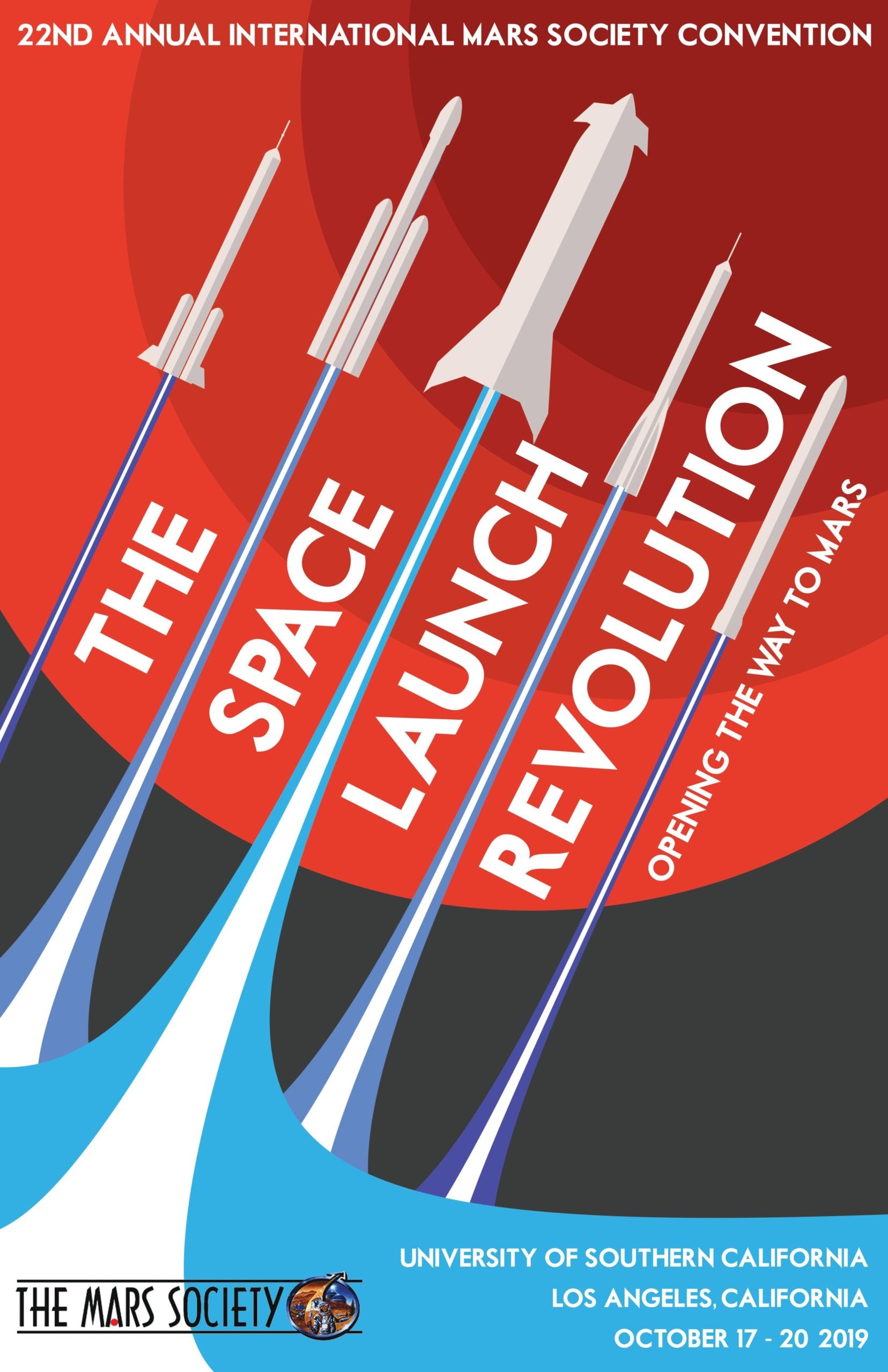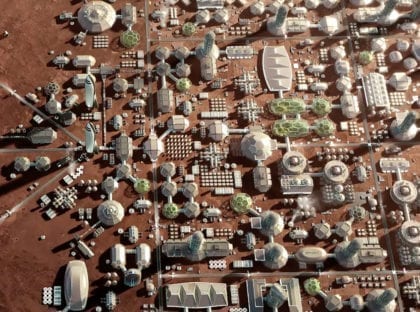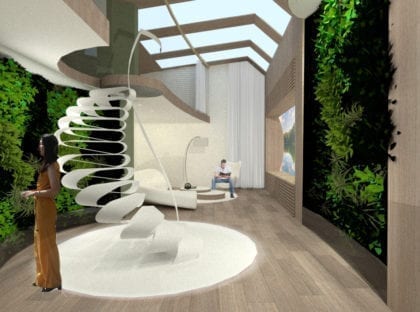
The Mars Society is holding a special contest called The Mars Colony Prize for designing the best plan for a Mars colony of 1000 people. There will be a prize of $10,000 for first place, $5,000 for second and $2500 for third. In addition, the best 20 papers will be published in a book – “Mars Colonies: Plans for Settling the Red Planet.”
The Mars colony should be self-supporting to the maximum extent possible – i.e. relying on a minimum mass of imports from Earth. In  order to make all the things that people need on Earth takes a lot more than 1000 people, so you will need to augment both the amount and diversity of available labor power through the use of robots and artificial intelligence. You will need to be able to both produce essential bulk materials like food, fabrics, steel, glass, and plastics on Mars, and fabricate them into useful structures, so 3-D printing and other advanced fabrication technologies will be essential. The goal is to have the colony be able to produce all the food, clothing, shelter, power, common consumer products, vehicles, and machines for 1000 people, with only the minimum number of key components, such as advanced electronics needing to be imported from Earth
order to make all the things that people need on Earth takes a lot more than 1000 people, so you will need to augment both the amount and diversity of available labor power through the use of robots and artificial intelligence. You will need to be able to both produce essential bulk materials like food, fabrics, steel, glass, and plastics on Mars, and fabricate them into useful structures, so 3-D printing and other advanced fabrication technologies will be essential. The goal is to have the colony be able to produce all the food, clothing, shelter, power, common consumer products, vehicles, and machines for 1000 people, with only the minimum number of key components, such as advanced electronics needing to be imported from Earth
As noted, imports will always be necessary, so you will need to think of useful exports – of either material or intellectual products that the colony could produce and transport or transit back to Earth to pay for them. In the future, it can be expected that the cost of shipping goods from Earth to Mars will be $500/kg and the cost of shipping goods from Mars to Earth will be $200/kg . Under these assumptions, your job is to design an economy, cost it out, and show that after a certain initial investment in time and money, that it can become successful.
In scoring colony designs, points will be allocated on the following basis:
+ 40 points technical design: What systems will be used? How will they work?
+ 30 points economic: How can the colony be made economically successful?
+ 10 points social/cultural: What should Martian society be like? What kinds of schools, arts, sports, and other activities, should there be? How, given a fresh start, can life on Mars be made better than life on Earth?
+ 10 points political/organizational: How should the colony govern itself?
+ 10 points aesthetic: How can the colony be made beautiful?
The contest is open to all people from every country. You can work alone or as part of a team. Each contestant will need to submit a report of no more than 20 pages presenting their plan by no later than March 31, 2019. A downselect will then be made to the top 10 plans, whose authors will be invited to present them in person in front of a panel of judges chosen by the Mars Society at the International Mars Society Convention in southern California in September 2019.
Entrants should file their design plan reports using the Design Submission Form located on the Mars Colony Prize website. During submission of their design, entrants will also provide confirmation that they are granting the Mars Society non-exclusive rights to publish their reports and agreeing to accept the decision of the judges as final. Reports should be in PDF form and use 12 point Times typestyle, 1” margins.
To help expose you to some ideas you might want to consider, a number of papers, including preliminary plans for Mars colonies and their necessary subsystems, are available on the MarsPapers.org research paper archive by selecting “Human Settlement” or “Utilizing Mars Resources” in the Search >> Category dropdown box.
Here is an additional useful reference for Mars Colony contestants. For any questions, please contact: info@marssociety.org.
[Art work by Bryan Versteeg]


